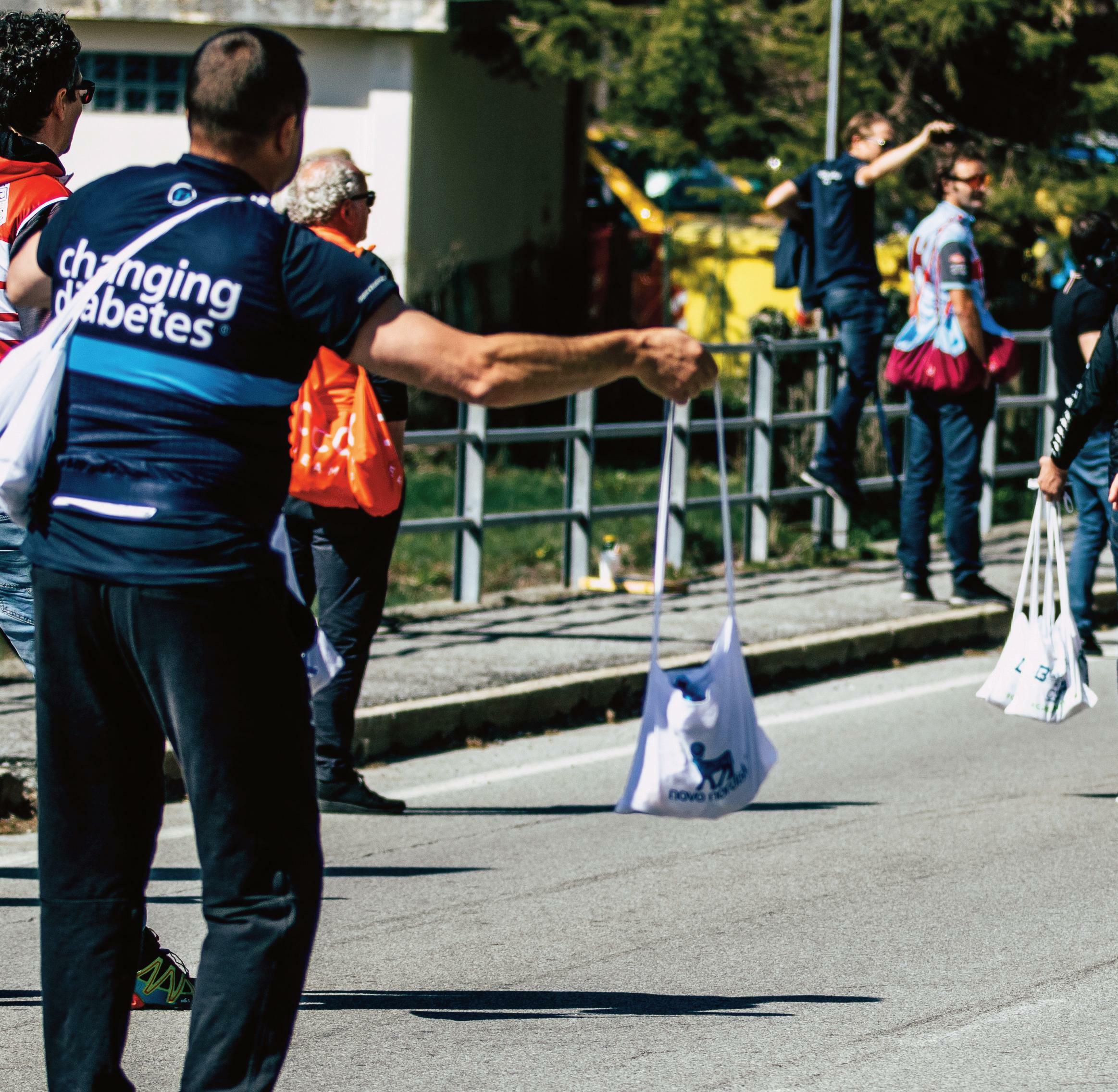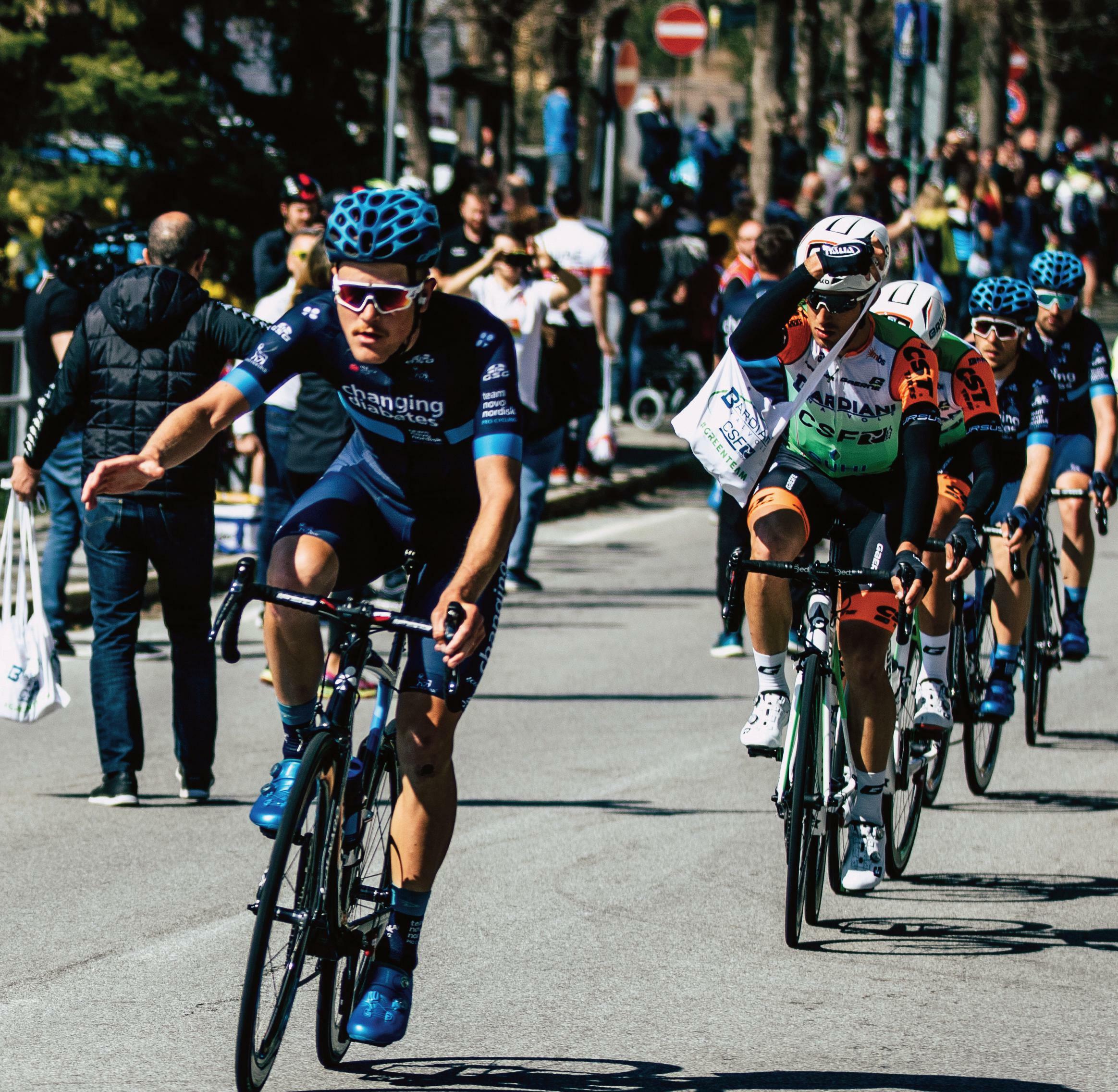
7 minute read
Chapter I – Alcide’s book
Chapter I
Alcide’s book
He put on his half-lens glasses. He didn’t like doing It so he always did it away from prying eyes - a form of modesty as if it was a defeat, a price to pay to have to do this during old age. For the rest though, apart from this presbyopia which accelerated year after year, Alcide was in good shape. His heart, prostate, and intestine did their duty and even his lungs (taking into account that he was a chain smoker), didn’t cause him problems apart from bronchitis that yearly, between January and February, forced him to rest. His doctor was an old pro who was very tried and disappointed with life. After his graduation he was expecting some satisfaction from his job which didn’t come. He did his work but he was bored of his patients, especially the elderly who crowded his studio more to spend time with him than for real medical need. His secretary, on the other hand, was very efficient. Throughout the years she gained a competence which allowed her to give pharmacological tips. Anna answered the phone which rang constantly, prepared prescriptions, managed doctor’s appointments with meticulousness: she knew and called everyone by their name, just like a country priest. Actually she was a 45 year old divorced lady, who struggled to surrender to the passing of time and so often she flaunted mini-skirts and fishnet stockings which Alcide considered silly. That morning, sitting in a bar, isolated from the other elderly of the village who spent their days at that same bar, Alcide was enjoying spring. Mimosa was already in bloom, but this had no meaning for someone who knew weather better than aeronautics. Alcide knew very well that winter wasn’t over yet and so he sat at his table without too many illusions. Others in the bar were drinking or playing cards but he loved to take the time to read a book alone. He wasn’t taciturn or surly, but rather he enjoyed his own company, his own thoughts and memories. In the attic, buried amongst trinkets, he found a book which he remembered reading a few years earlier. The book was about the stories of famous champions from Pelè to Borg, from Thoeni to Cassius Clay. But his favourite chapter, was the one about Fausto Coppi. Alcide ordered a coffee and began to read. The Heron who flew on his bike
“It’s a boy…. Domenico …look…it’s a male!!!” yelled Angiolina, thinking that more labour force would help the family’s economic balance. “Bah…- grunted Domenico – He'd weigh a couple of kilos at most–said with disappointment as he picked him up – he’s not good for the countryside!” Fausto Coppi was born like that, from a radiant mother and a disappointed father. From the first minutes of his life, he managed to divide people. This was his fate: to split people, between those who loved him and those who accused him, between those who identified themselves in his sorrows and those who couldn’t understand them. Between those who were moved by his feelings and those who made fun of them. When he was young, in order to earn some money, Fausto made deliveries by bike and he ran fast, fast, fast and dreamed of making a career of cycling and becoming a professional cyclist. He took part in his first Giro d’Italia with the Legnano Team, as supporting rider of Gino Bartali, the star at the time. Coppi was as introverted as Bartali was bold. Coppi didn’t eat or drink much compared to Bartali who was goliardic. Coppi was Piedmontese, Bartali was Tuscan. Coppi didn’t respect his captain and so at the Abetone he sprinted ahead. He pedaled so naturally that it seemed unnatural. He didn’t sweat or struggle, he simply ran and flew like a heron toward the finish line and toward the pink jersey that he would keep during the entire Giro. During the Milan-Sanremo of the stage same year, Coppi was in great shape, it seems like he had something more. The radio announcer, who recounted the race, announced: “Fausto Coppi has won the Milan-Sanremo! While waiting for the runner-up, we’ll play dance music” - Coppi won with a 14-minutes lead. In ’49, at the Giro d’Italia they ran the stage from Cuneo to Pinerolo, 192 kilometers through 5 alpine passes. It was a very hard stage, one of those feared by cyclists, who were afraid not so much of a bad placing but of the chance of not making it and instead surrendering to the street, their true enemy. When the radio began broadcasting, millions of Italians were waiting to hear the voice of the radio announcer Mario Ferretti, who pronounced the phrase which made him famous “One man is in the lead, his shirt is white and sky-blue, his name is Fausto Coppi”. In ’53 Fausto became World Champion in Lugano, with a 6-minute lead from the Belgian Derycke. On the podium we saw an unusually glowing Coppi, with the 'white lady' publicly by his side for the first time. Her name was Giulia Occhini, 27 years old and her husband was a doctor, Enrico Locatelli who was very rich and older than her by 20 years. They had two children. Fausto is married too, with Bruna Ciampolini, and they had a daughter, Marina. Their love split, once again, a bigoted and puritan Italy between those supporting them and those attacking them.
The scandal was public knowledge. Coppi was forbidden to see his daughter Marina, and those conditions were very hard for him to find motivation to compete and win. For a small payment Coppi decided to take part in a commemorative event for the independence of an African Country. He decided to participate because he got the chance to hunt which was his other great passion. He was sleeping in a very humble hotel and was sharing the room with his friend, a cyclist, Raphael Geminiani
“We were attacked by mosquitoes” – said Geminiani- “we were tortured. Just after Christmas he called me. Fausto wanted to build a team of French cyclists, to launch his bike, Coppi’s bike. I told him, I felt sick with a strange fever. He told me he had fever too and that he was going to bed”. The night of the 27 December, Fausto Coppi, exhausted and yellow as a lemon, went to bed with a fever of 40. Someone called his doctor, Ettore Allegri who diagnosed Asian flu and prescribed Antibiotics. In France, Raphael Geminiani went into a coma. His blood was brought to Pasteur Institute and the response was: malaria. Doctors gave him quinine and saved him. The wife of Raphael called Villa Carla (Coppi’s home) to warn that his husband had malaria and that Fausto, who meanwhile had worsened, had it too for sure. A doctor told her not to meddle and that they would heal Fausto. They had a consult and the diagnosis was bronchopneumonia. The result of that consult was disastrous. To the antibiotics, they added cortisone, and it was like throwing gasoline on the fire. There is nothing worse than cortisone for someone with malaria.
Geminiani’s brother called again to make sure of Fausto’s conditions and yelled “the quinine…you must give him quinine!!”. There was nothing to do, doctors did not want to. Coppi got worse but by this time even the quinine, given to someone who had had so much cortisone, could not have prevented his death. On January 1, the doctors decided to hospitalize him. When Coppi arrived to the hospital in Tortona, the test results were ready: it was malaria. On January 2, 1960, at the 8,45, Fausto Coppi, the white heron, closed his wings forever. A French journalist wrote “This sad death, premature and unfair, will sanctify a hero and will make him a martyr. It made a champion an immortal”.


“In professional cycling you can’t hide, you don’t have time to breathe or change Strategy. But at the end of the day, the right training gives you the right results. And this is as true in sports as it is in the management of diabetes. “
Vassili Davidenko General Manager Team Novo Nordisk










